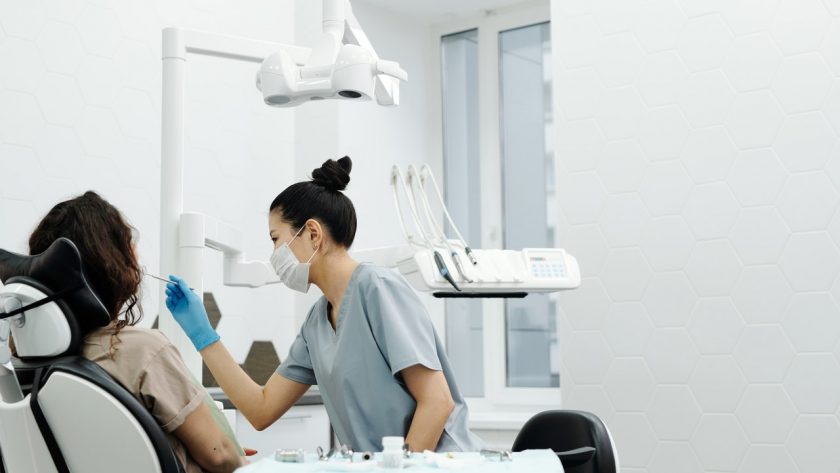Visiting the dentist makes many people nervous. The decision to give into dental anxiety, however, may have a harmful effect on your oral health and overall health if it causes you to postpone or skip your regular dental checkups and cleanings.
A biannual checkup is the most crucial thing you can do to improve your dental health, apart from flossing and brushing your teeth every day. Additionally, there are significant connections between your dental health and overall health, so taking good care of your oral health is essential for maintaining a healthy body. Unfortunately, those suffering from anxiety over their teeth often skip the crucial appointment.
Relieving Your Anxiety
Signs of dental anxiety include increased heart rate, sweating, rapid breathing, and raised blood pressure. Dental anxiety is the disconcerting, overpowering sense of frantic worry you receive when it’s time to go into the dental clinic or in the chair of their treatment. Here are some ways to help you defeat your dread of seeing the dentist.
1. Find a dentist that you can trust.
It is essential to remember that there aren’t all dentists the same, even if you’ve had bad experiences with them. Asking friends and relatives for recommendations, looking through customer reviews online, or visiting some clinics may help you find one that makes you feel at ease. There is a possibility of finding a facility with friendly and accommodating staff who are willing to address your concerns and a dentist that will make you feel at ease.
You should be available to your dentist Steinbach. The more you communicate your concerns to your dentist and the team, the better they’ll be able to help you feel at ease. Discuss it in your consultation if you have a certain concern that you know will be difficult to address.
2. Manage your schedule.
Most people today have very hectic schedules. We’re constantly rushing from one task in the morning to do another. This is why many of us squeeze in dental visits when we have free time. This last-minute scheduling might add to your anxiety if you suffer from dental anxiety. Avoid making an appointment in the middle of your day.
The schedule you choose to follow will likely make you feel pressured and stressed out during your appointment and complete the remainder of your day stressful. Visits should be scheduled for days when your list of things to do is as empty as possible and allows you to relax and plan your day.
3. Make sure you have someone to accompany you during the appointment.
Most adults go to the dentist for their dental needs on their own. Bring a family or friend who understands your concerns. They may be able to aid you in maintaining calm throughout your visit. You’ll have to speak with your dentures Chilliwack specialist in advance. The space for dental care at some dental offices is so tiny that you and your spouse may need to wait in the waiting room. Knowing a friend is nearby could be enough to make you feel better.
4. Make use of any distraction method.
Spend time thinking about what it is about going to the dentist that worries you the most. Once you’ve come up with an answer, seek an approach to ease the anxiety. Listening to music such as this is an excellent way to get rid of the noise in the world around you. Begin your session by playing your preferred tune and put on your headphones if you require a quick distraction.
You can also check whether the clinic has entertainment options, such as TV shows, movies, or music channels that you can watch while in the treatment place. A dark pair of shades could also help completely block out the feelings.
5. Ask about sedation.
Pain is among the most common foundations of dental anxiety. Discuss your issues with your dental implants Hamilton specialist and hygienist so that they know the cause of your stress. Local anesthesia is used in several dental procedures to cause a dulling sensation in the affected area of the mouth. Your dentist could also recommend dental sedation to help you feel comfortable and relaxed during your procedure.
However, this may delay the healing process. You’ll feel more at ease regardless of which option you select if you consult your dentist about other options to reduce discomfort.


